Shape Recognition Easy Math Worksheets for Ages 7-9
16 filtered results
-
From - To
Discover our engaging Shape Recognition Easy Math Worksheets designed specifically for children aged 7-9! These worksheets are perfect for young learners to enhance their understanding of shapes through fun and interactive exercises. Packed with colorful illustrations and challenging activities, they help kids identify and differentiate between various geometric shapes while developing critical thinking skills. Our resources are aligned with educational standards, ensuring a valuable learning experience that makes math enjoyable. Whether at home or in the classroom, these worksheets foster creativity and problem-solving abilities. Start your child’s journey in mastering shape recognition today with our comprehensive collection of easy math worksheets!
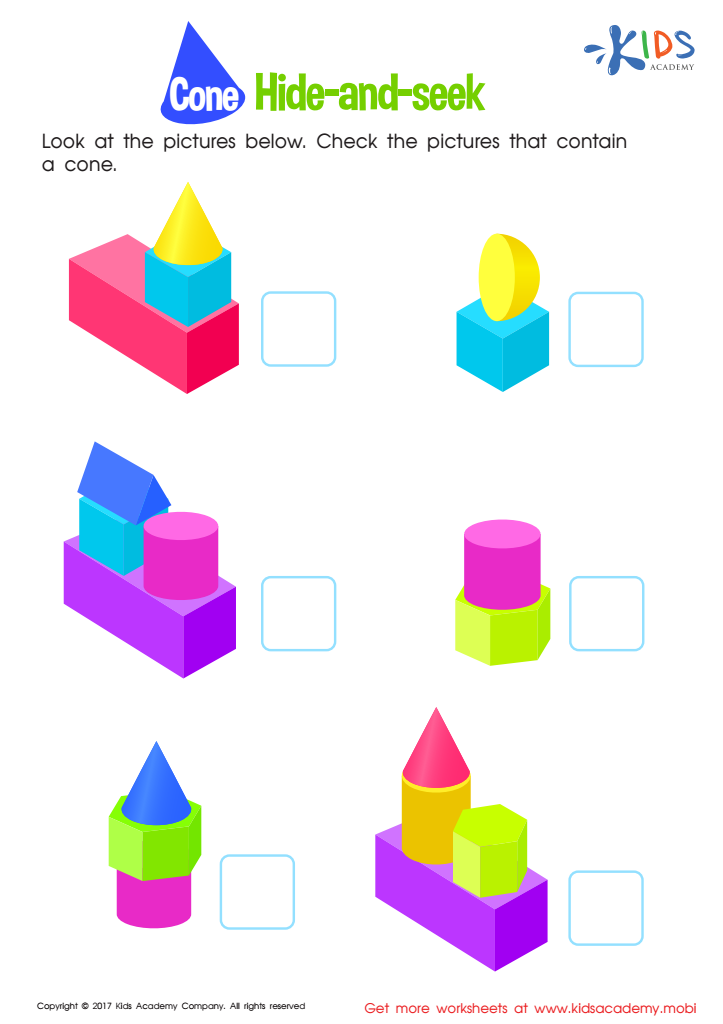

Cone Hide-and-Seek Worksheet
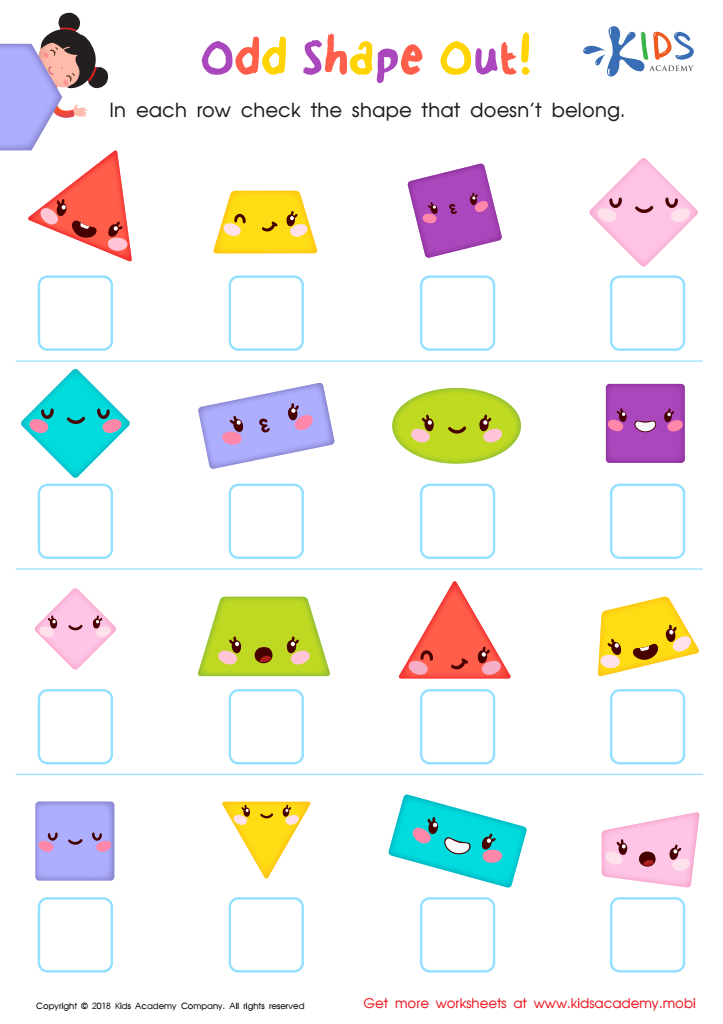

Odd Shape Out Worksheet for Grade 3
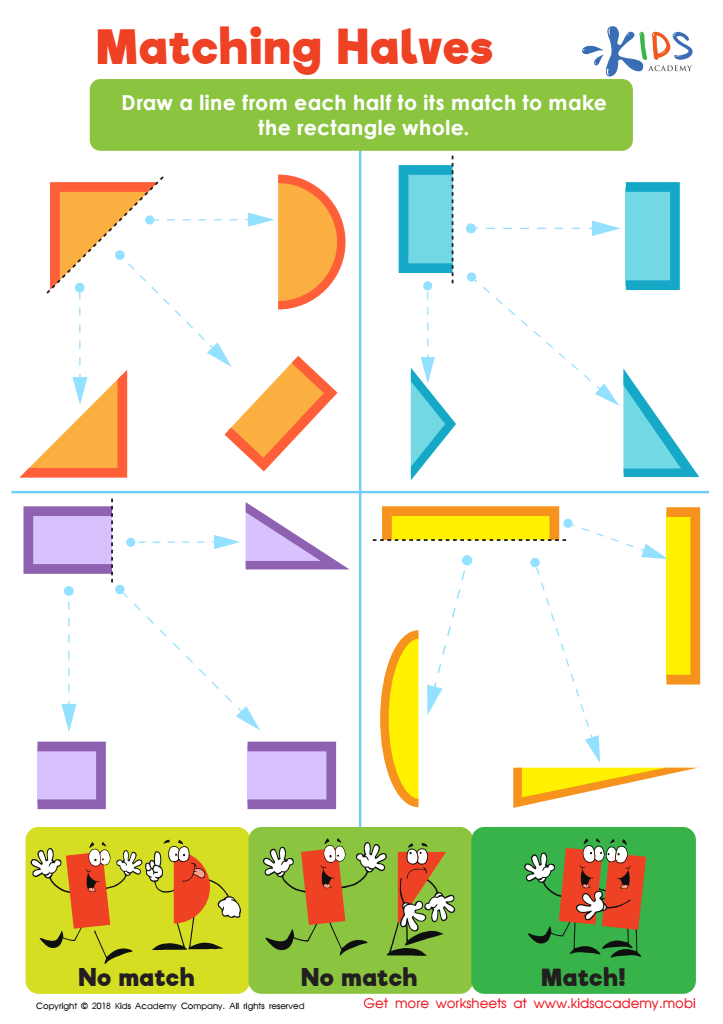

Matching Halves Worksheet
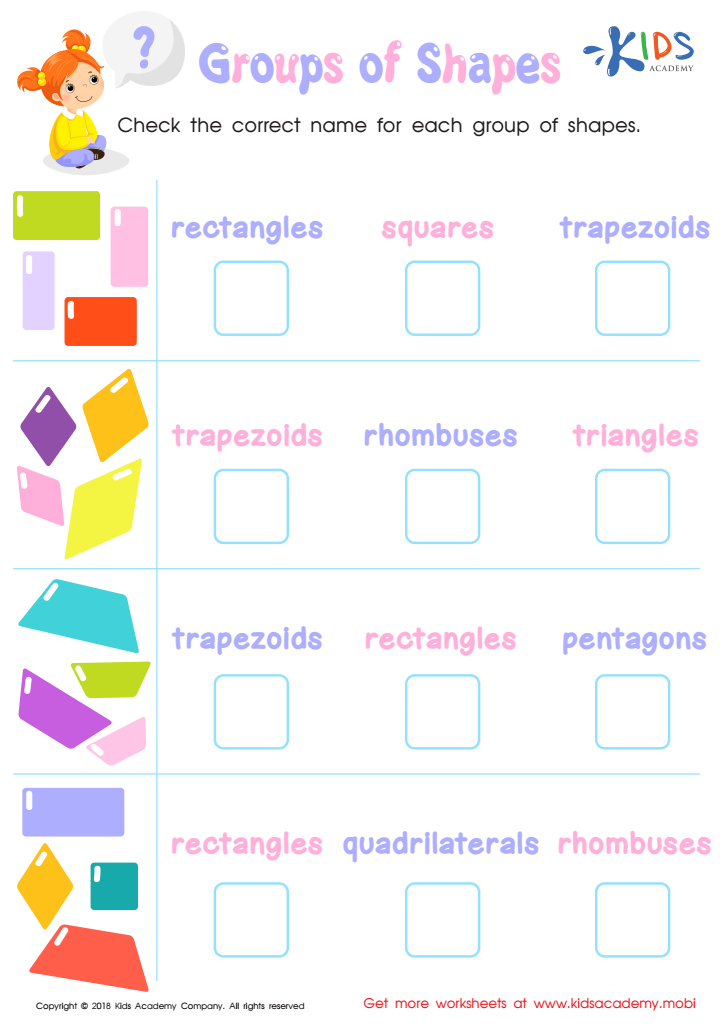

Groups of Shapes Worksheet


Faces of 3D Shapes Worksheet
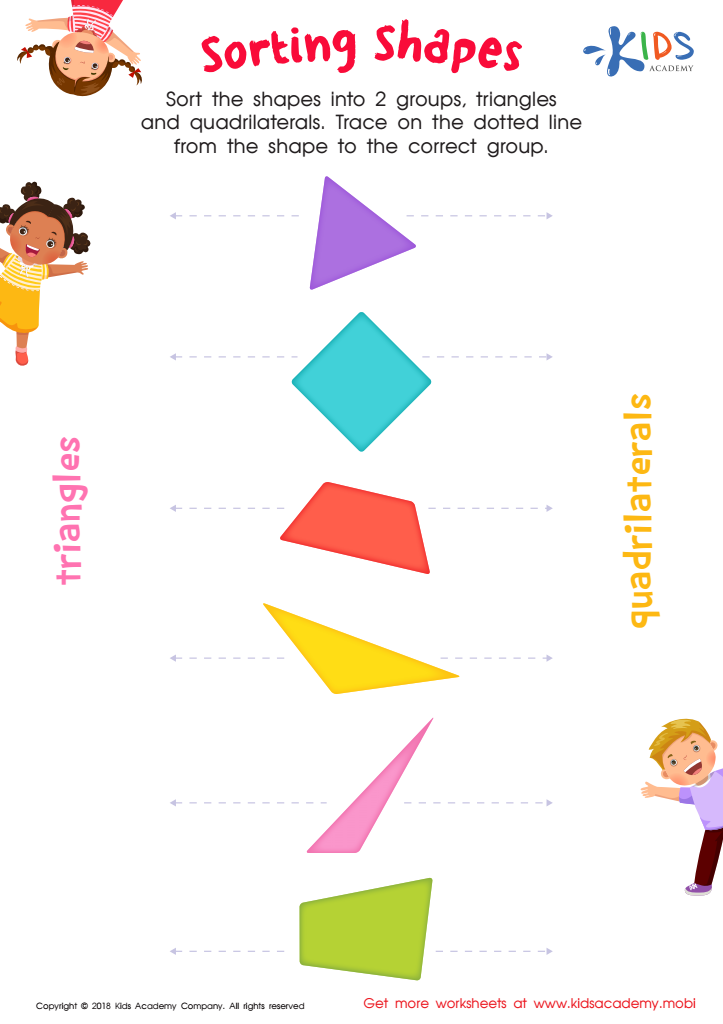

Sorting Shapes Worksheet
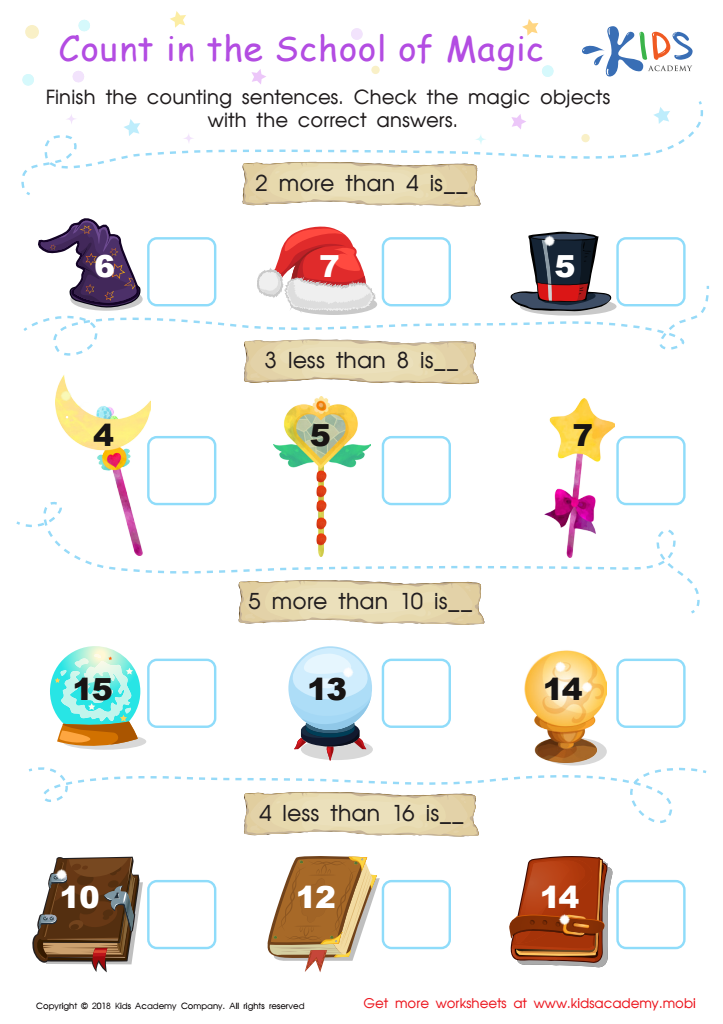

Count in the School of Magic Worksheet
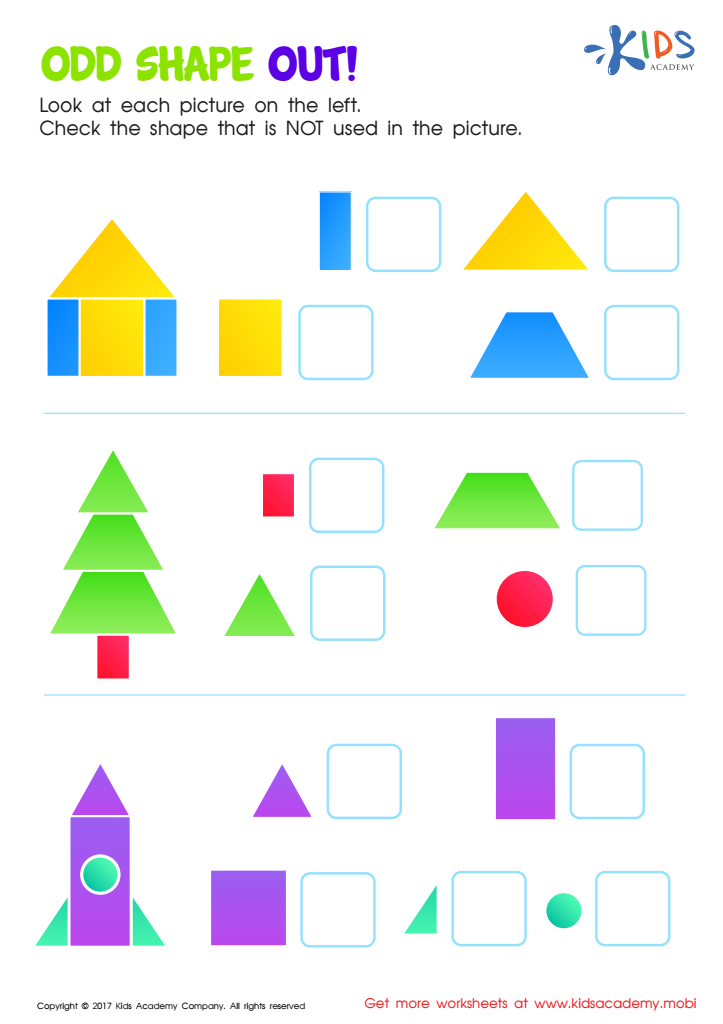

Odd Shape Out Worksheet for Grade 1
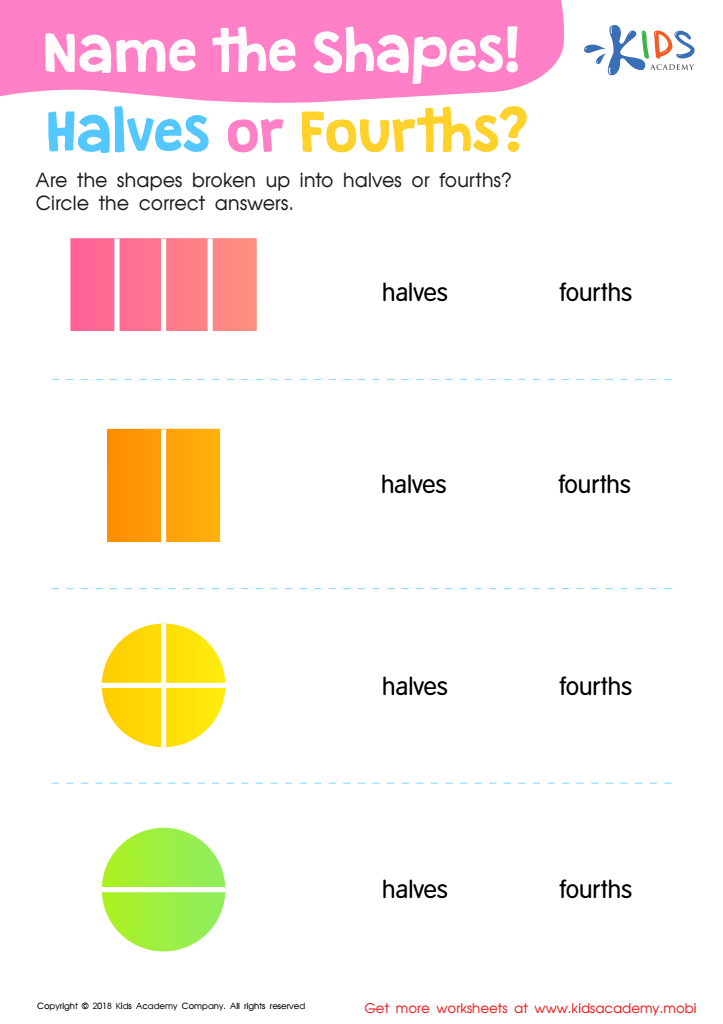

Name the Shapes Halves or Fourths? Worksheet


Color the Shapes Worksheet
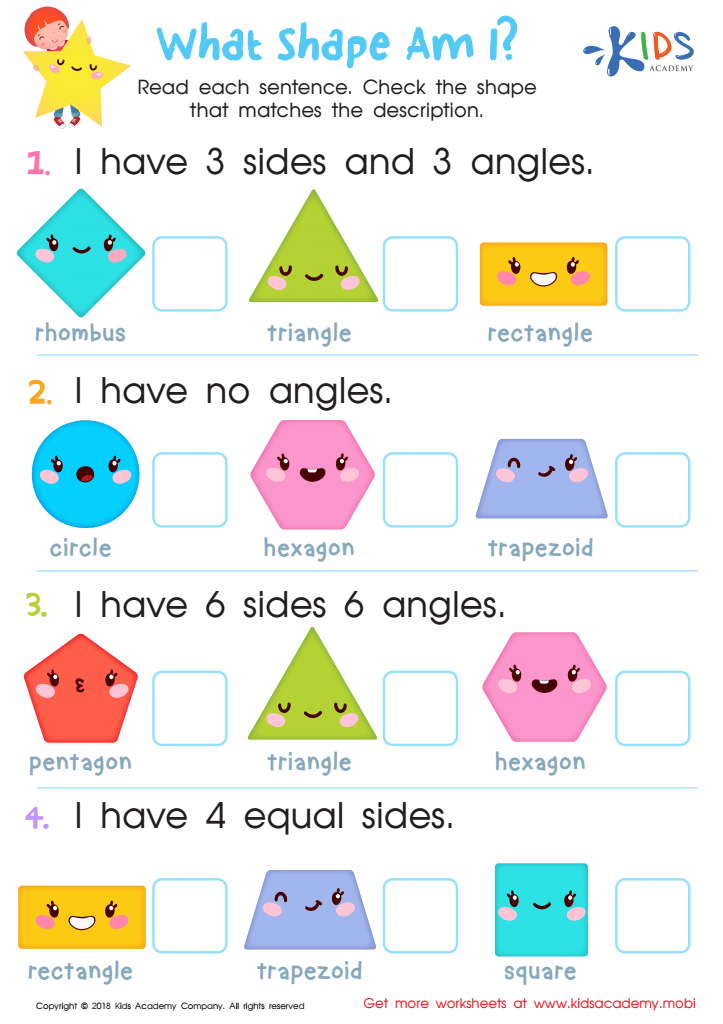

What Shape Am I? Worksheet
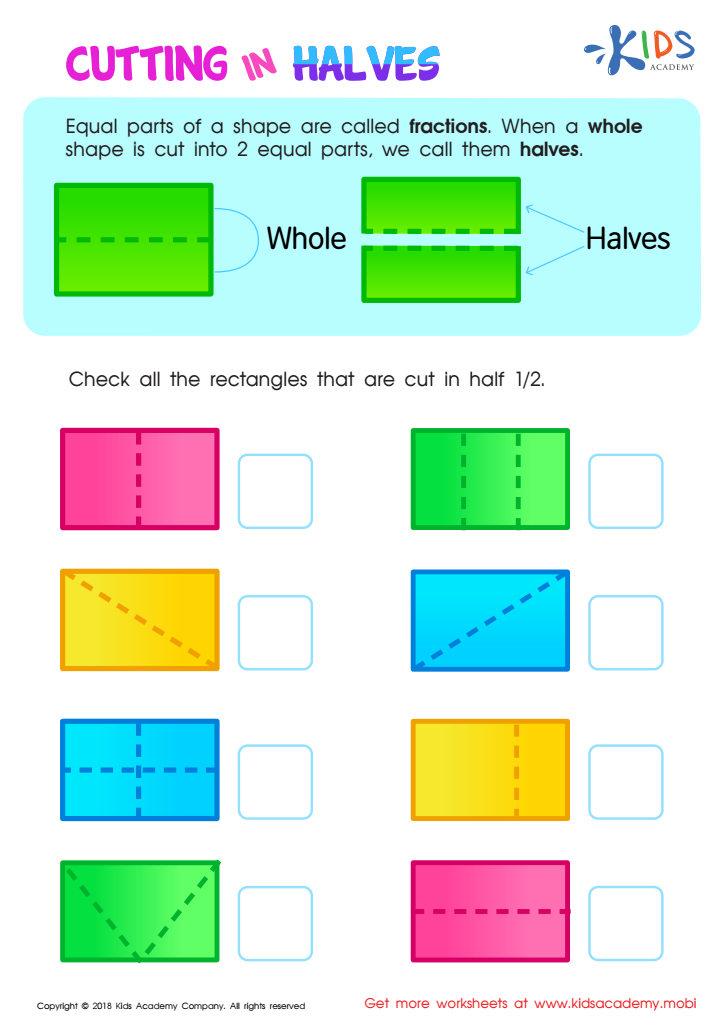

Cutting in Halves Worksheet
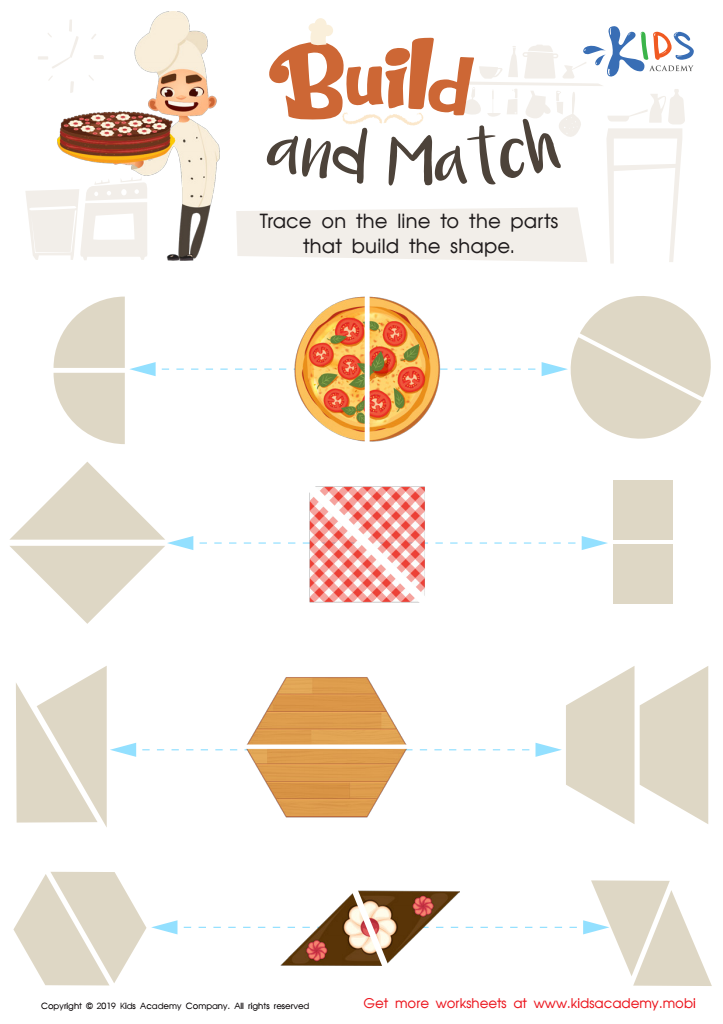

Build and Match Worksheet
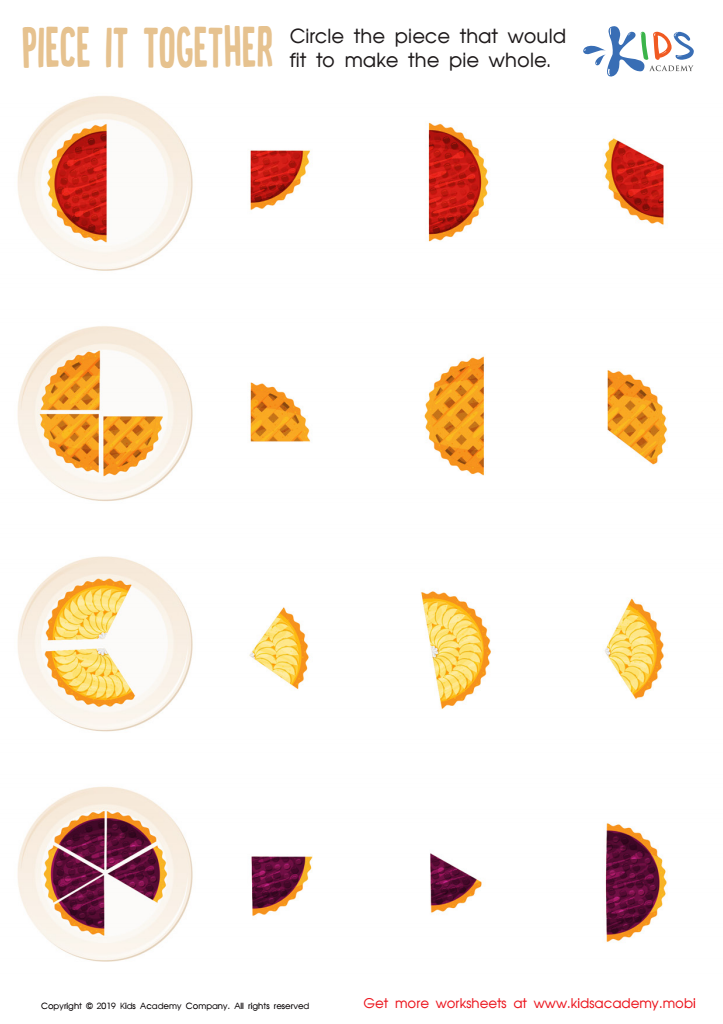

Piece it together Worksheet
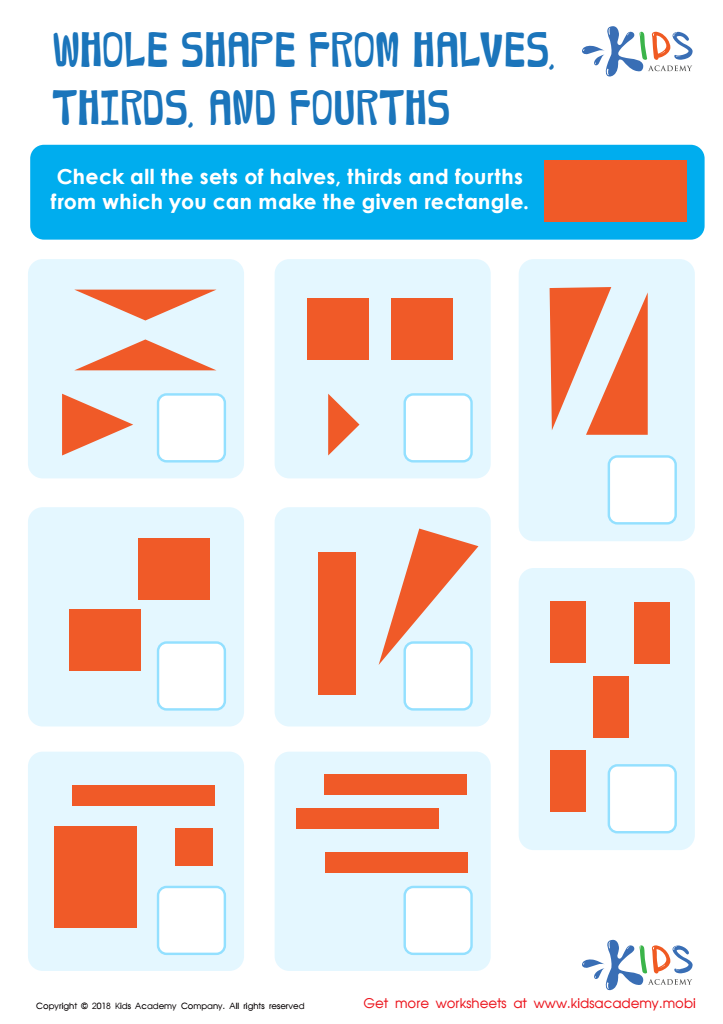

Whole Shape from Halves, Thirds and Fourths Worksheet
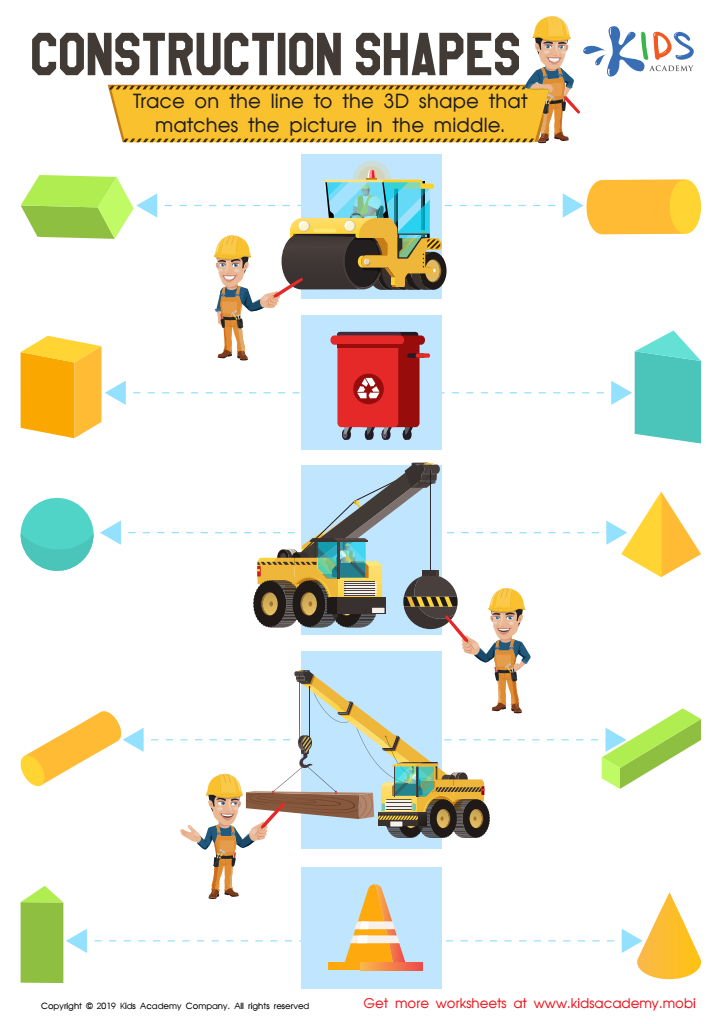

Construction Shapes Worksheet
Shape recognition is a fundamental skill that significantly influences a child's early mathematical understanding and overall cognitive development. For parents and teachers of children aged 7-9, emphasizing shape recognition can bolster spatial awareness, critical thinking, and problem-solving skills.
At this age, children begin to transition from concrete to more abstract mathematical concepts. Recognizing shapes is not just about identifying triangles and squares; it lays the groundwork for understanding geometry, measurement, and fractions. This foundational knowledge fosters confidence and curiosity in math, encouraging children to explore these concepts further.
Additionally, engaging children in shape recognition activities promotes fine motor skills and can be a fun, interactive experience, enhancing their learning enjoyment. It enables educators and parents to facilitate learning through games, puzzles, and real-life applications, making math relatable and exciting.
Furthermore, children who develop strong shape recognition skills often perform better in subsequent math topics. Therefore, investing time and resources in this foundational area can contribute to better academic outcomes and a positive attitude toward learning. As partners in education, parents and teachers play a crucial role in nurturing these skills, ultimately setting children on a successful path in mathematics and beyond.
 Assign to My Students
Assign to My Students
















